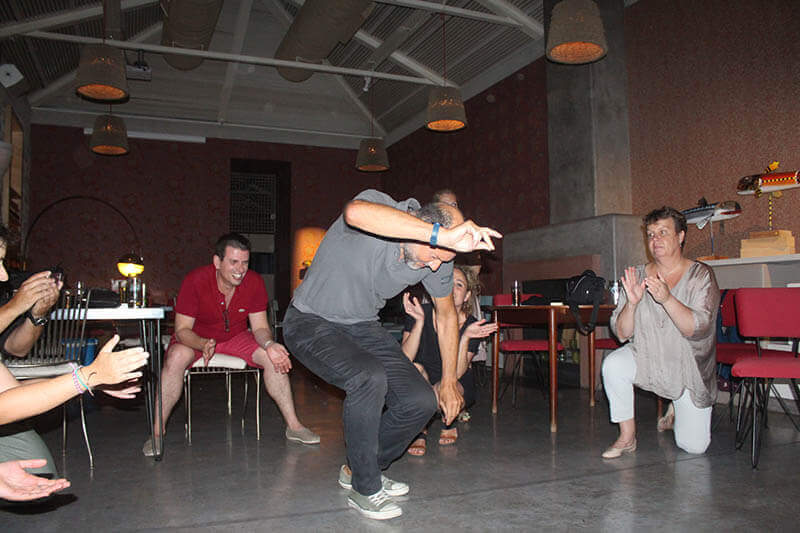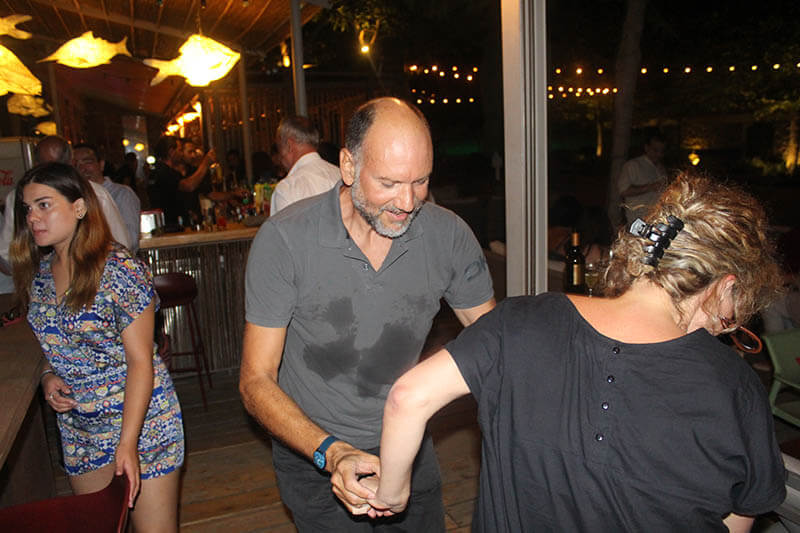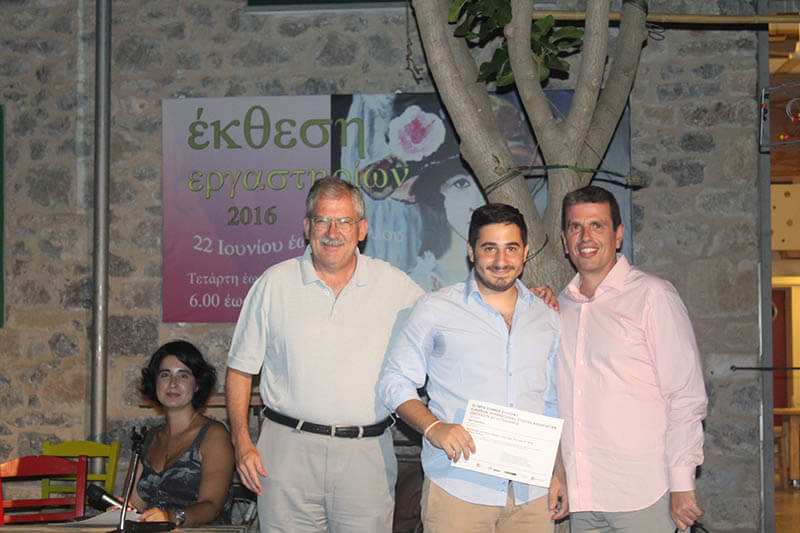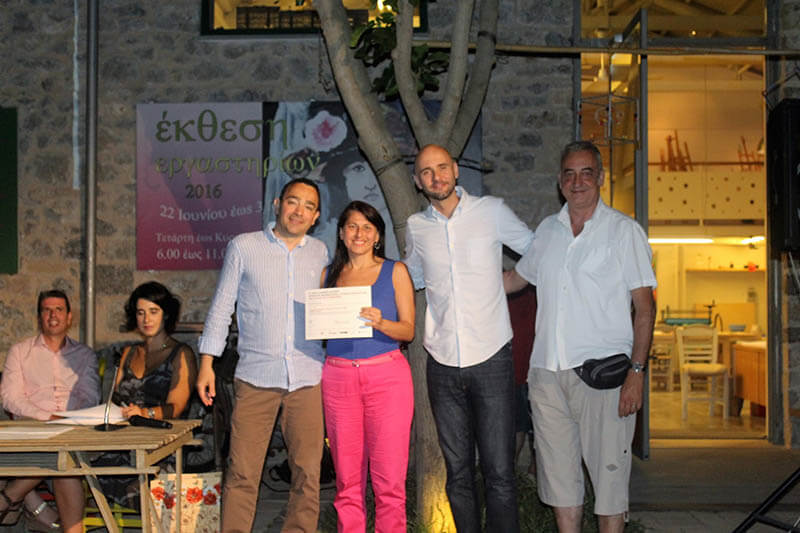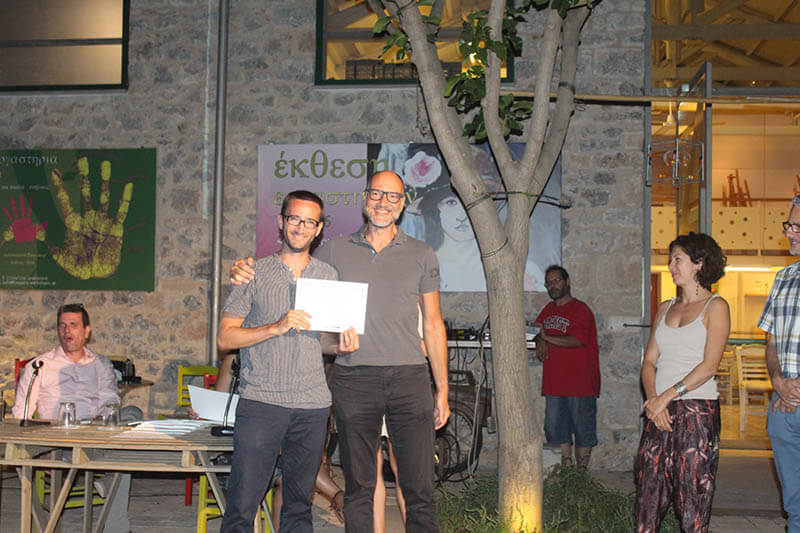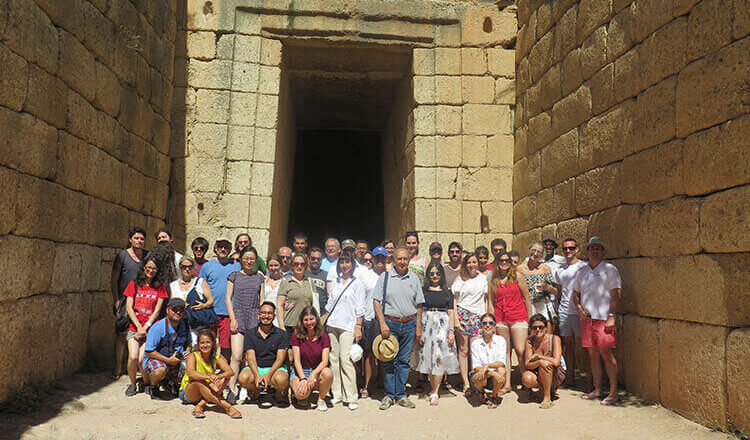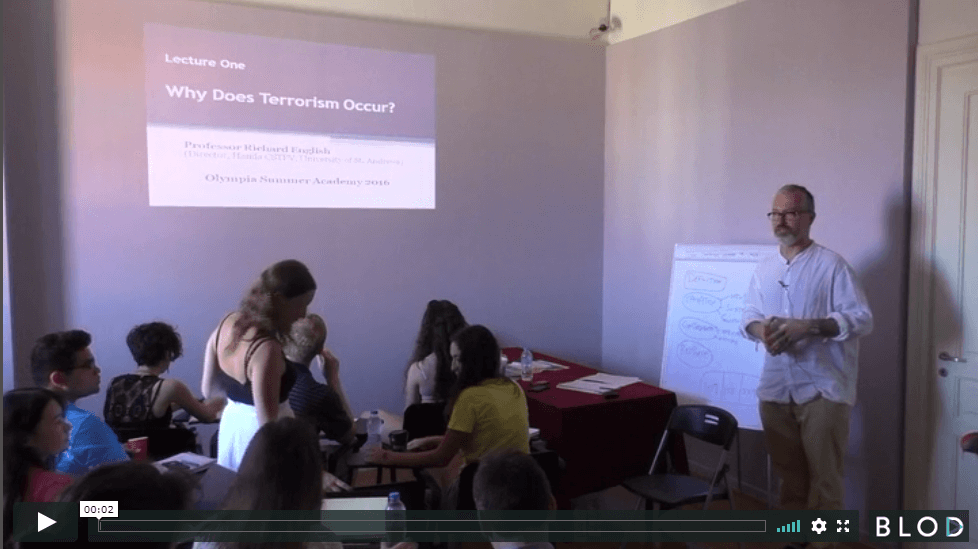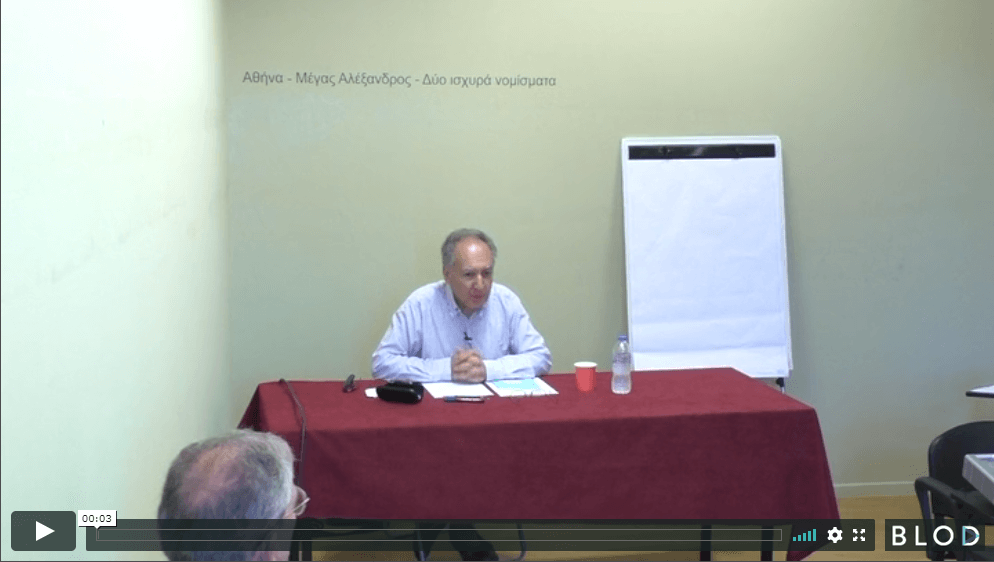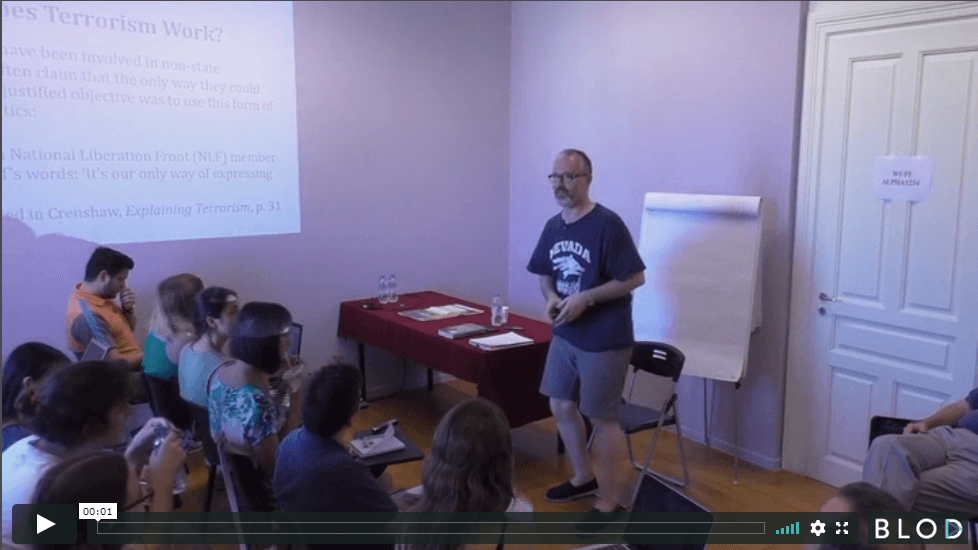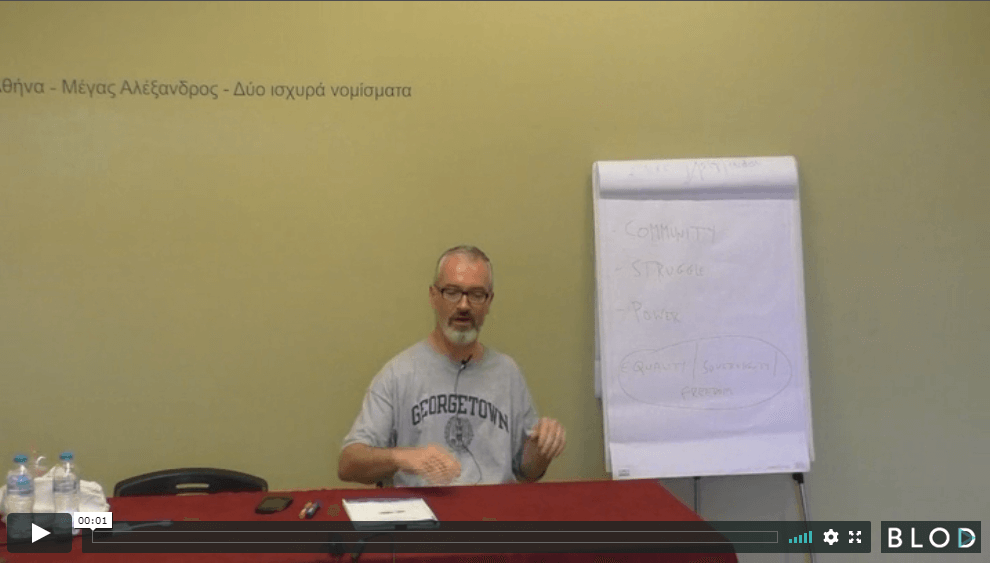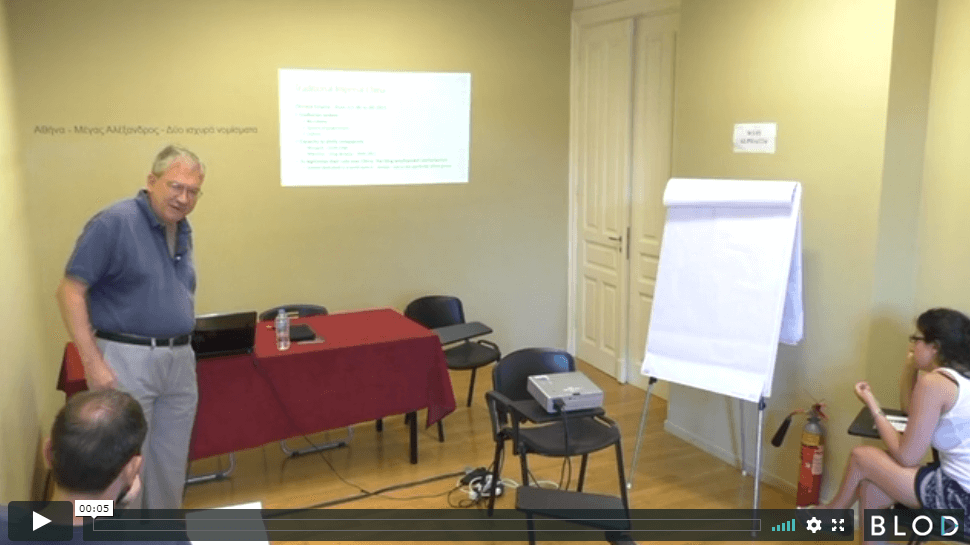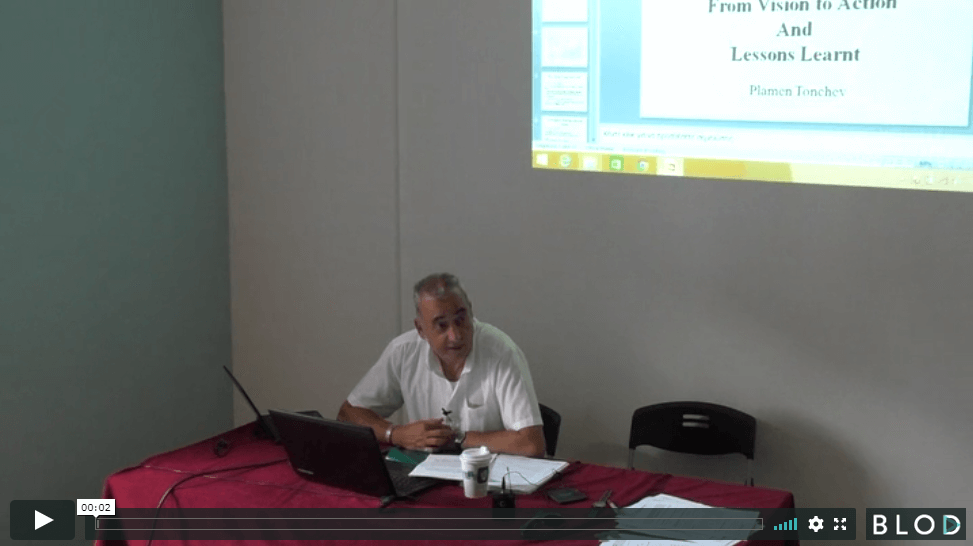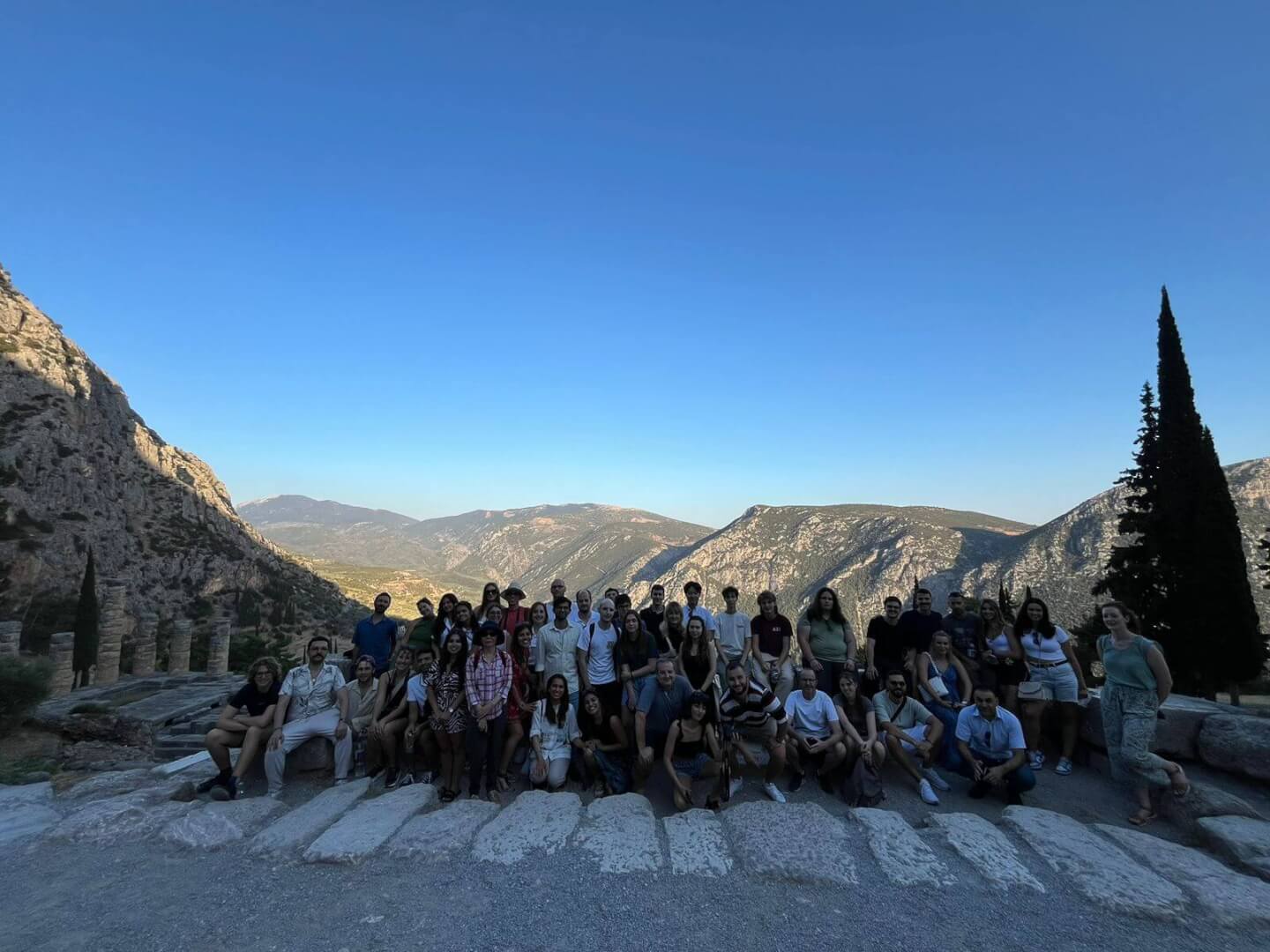Course Structure & Faculty
This year’s Olympia Summer Academy will run in parallel course-cycles:
Conflict & Political Violence
The History, Philosophy, and Sociology of IR
Europe’s Shifting Political Order
Religion and International Politics
Terrorism and Counterterrorism
Political Risk Analysis
Nationalism and Ethnic Politics
July 11-21, 2016
Naflpio, Greece


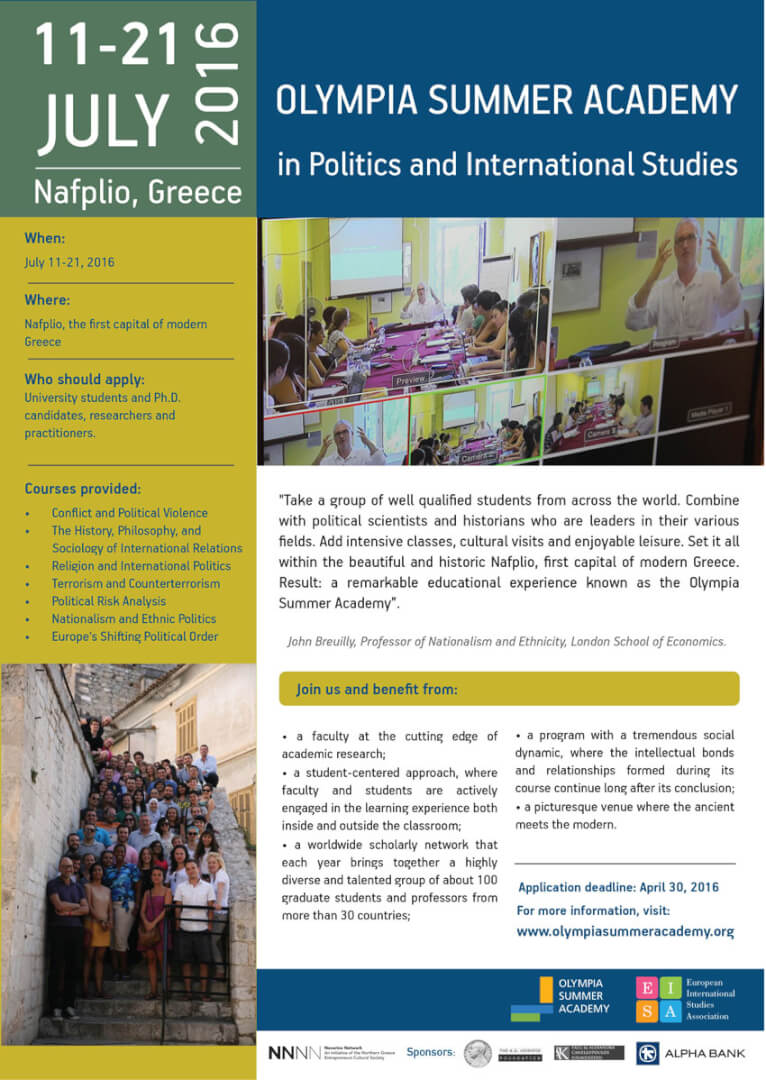
A: Conflict & Political Violence

The goal of this course is to review the most recent developments in the field of conflict and political violence. In exploring the intersection of large-scale collective action and political violence, we will draw from several fields of research and methodological approaches and we will examine a broad cross-section of topics, including the causes and dynamics of civil war, ethnic conflict, mass violence, genocide, riots, and terrorism; the logic of rebel group formation, cohesion, and performance, and the dynamics of post-conflict violence, peacekeeping, and peace-building. Our geographic focus will be broad, reflective of the faculty’s diverse expertise. An integral part of the course is a workshop where students can present their ongoing research and receive feedback from faculty and peers.
Faculty
Richard English (Ph.D. Keele), Director of the Handa Centre for the Study of Terrorism and Political Violence (CSTPV); Bishop Wardlaw Professor of Politics in the School of International Relations, University of St Andrews.
Francesca Grandi (Ph.D. Yale), Postdoctoral Fellow, MacMillan Center, Yale University.
Stathis Kalyvas (Ph.D. Chicago), Arnold Wolfers Professor of Political Science, Yale University; Director of Yale’s Program on Order, Conflict, and Violence; author of The Logic of Violence in Civil War.
Jason Wittenberg (Ph.D. MIT), Associate Professor of Political Science, University of California, Berkeley.
B: The History, Philosophy, and Sociology of IR

The course seeks to provide a panoramic view of International Relations (IR) as a field of study by integrating three distinct foci. It explores the philosophical foundations of IR, retraces IR’s historical development as a professional field of study, and interrogates the sociological mechanisms through which scholarship is produced and the field is structured.
By the end of the course, students will have acquired a good grasp of the main meta-theoretical issues in the discipline of IR and the social sciences more broadly. An integral part of the course is a workshop where students can present their ongoing research and receive feedback from faculty and peers.
Faculty
Andreas Gofas (Ph.D. Warwick), Assistant Professor of International Relations, Panteion University of Athens; Honorary Research Fellow, The University of Sheffield.
Inanna Hamati-Ataya (Ph.D. Université Paris 1 Panthéon-Sorbonne), Reader in International Politics, Aberystwyth University.
Nicholas Onuf (Ph.D. Johns Hopkins), Professor Emeritus of International Relations, Florida International University; Professor Associado, Pontifícia Universidade Católica do Rio de Janeiro.
C: Europe’s Shifting Political Order

The course examines Europe’s shifting order in the wake of the crises shattering the global economy and the eurozone. The manifold challenges facing the European Union (EU) at present have had a profound effect on its relations with neighbours. Internal cleavages have hobbled common foreign policy while Putin’s Russia has morphed from a difficult partner to a bona fide rival in the Eastern neighbourhood. With Tayyip Erdogan at its helm Turkey sees itself as an autonomous power rather than a perennial accession candidate.
As the US is gradually disengaging from European affairs the wider continent of Europe is transitioning to a polycentric order. While the EU is still the dominant economic pole its political clout is diminishing. The course will feature lectures exploring interrelated themes such as EU’s role in adjacent regions (the Western Balkans, post-Soviet states, North Africa and the Middle East); the rise of Russia and Turkey as centres of power; the responses and strategies of states in “Wider Europe” to structural change at the regional level.
Faculty
Dimitar Bechev (Ph. D. Oxford University), Visiting Scholar, Center for European Studies, Harvard; Director, European Policy Institute, Sofia.
Dimitris Keridis, (Ph.D. Tufts), Professor of International Relations, Panteion University of Athens.
Harry Papasotiriou (Ph.D. Stanford), Professor of International Politics, Panteion University of Athens; IIR Director.
Andrew Wilson (Ph.D. LSE), Professor in Ukrainian Studies at University College London; Senior Policy Fellow at the European Council on Foreign Relations.
D: Religion and International Politics

The idea that religion matters in international politics is no longer a subject of much controversy in academia. Yet, this welcome break from a rather long-standing disciplinary “securalizing” silence/bias has, nevertheless, yielded rather little in terms of robust theorizing on how religion matters to politics at the national, international, and transnational contexts. This cycle offers a survey of the state of the field when it comes to understanding the nexus between religion and politics.
Our regional focus will be comparative, with particular emphasis on cases from Turkey, EU, and Greater Middle East. We will examine the role that religious issues play in the practice of international relations and, in particular, their influence on nationalism and identity politics, democratization, international norms, foreign policy, conflict and violence, and peace and negotiation, so as to allow students to leave the cycle with a provocative and rigorous overview of an evolving and fascinating field of inquiry.
Faculty
Dimitris Keridis (Ph.D. Tufts), Professor of International Relations, Panteion University of Athens.
Paschalis Kitromilides (Ph.D. Harvard), Professor of Political Science, University of Athens.
Harry Papasotiriou (Ph.D. Stanford), Professor of International Politics, Panteion University of Athens; IIR Director.
Elizabeth Prodromou (Ph.D. MIT), Visiting Associate Professor of Conflict Resolution at The Fletcher School for Law & Diplomacy, Tufts University; Co-Chair of the Eastern Mediterranean and Europe Study Group at Harvard University’s CES.
E: Terrorism and Counterterrorism

Terrorism, and our response to it, are among the most compelling of global political issues: they dominate news headlines, public anxiety, and political strategies alike. Yet few attempt to analyze systematically this pressing phenomenon. Surely, no amount of analytical precision will rid us of the existence of terrorism, but if we want to respond effectively to the policy challenge that it poses we need first to respond effectively to its analytical challenge. To this end, the course seeks to provide an overview of the state-of-the-art in the study of terrorism, while also debate whether there is a significant continuity or transformation in terrorist behavior.
Topics that will be covered include: the place of terrorism within the broader context of political violence; the causes of terrorism; the inherent difficulties in defining terrorism and compiling reliable data on terrorist attacks; the distinction between ‘old’ and ‘new’ terrorism; the politics of terrorist risk perception; the global war on terror and counterterrorism. An integral part of the course is a workshop where students can present their ongoing research and receive feedback from faculty and peers.
Faculty
Richard English (Ph.D. Keele), Director of the Handa Centre for the Study of Terrorism and Political Violence (CSTPV); Bishop Wardlaw Professor of Politics in the School of International Relations, University of St Andrews.
Andreas Gofas (Ph.D. Warwick), Assistant Professor of International Relations, Panteion University of Athens; Honorary Research Fellow, The University of Sheffield.
Stathis Kalyvas (Ph.D. Chicago), Arnold Wolfers Professor of Political Science, Yale University; Director of Yale’s Program on Order, Conflict, and Violence; author of The Logic of Violence in Civil War.
F: Political Risk Analysis

In recent times, financial investors and multinational corporations have become more aware of the need to “go beyond economics” and integrate political factors into their decision-making process. From the ongoing transformation of the Middle East to the Eurozone sovereign debt crisis, politics currently lie behind the most important global market-shaping events. The objective of the course is to explore ways in which political risk can be analyzed and managed in a range of environments.
The course is structured to provide participants with a good theoretical understanding of the concept, but also with analytical tools to identify, trace and measure political trends that can affect business and investment interests. We will examine political risk in both emerging markets and developed economies and cover specific sources of risk such as domestic instability, geopolitics or regulation. The course will rely heavily on case studies ranging from transnational to local examples. Simulations covering current political events will also be used in order to encourage a hands-on approach of participants and help them design strategies to manage and mitigate political risk.
Faculty
Antonio Barroso, Managing Director (Europe) and Deputy Director of Research, Teneo Intelligence.
Wolfango Piccoli, Co-president and Director of Research, Teneo Intelligence.
G: Nationalism and Ethnic Politics

The course provides an overview of a vast and expanding literature and an introduction to the most relevant current debates in the field of nationalism and ethnic politics. The course deals with the concepts, theories, historical origins, trajectories and variety of nationalism and its relationship with the modern state. With the help of a number of historical case studies from the distant and the recent past, the course investigates the significance of ethnicity for today’s globalizing world.
Faculty
Montserrat Guibernau (Ph.D. King’s College), Professor of Politics at Queen Mary University of London; Senior Fellow at the Canada Blanch Centre, London School of Economics (tbc).
Dimitris Keridis (Ph.D. Tufts), Professor of International Relations, Panteion University of Athens.
Paschalis Kitromilides (Ph.D. Harvard), Professor of Political Science, University of Athens.


